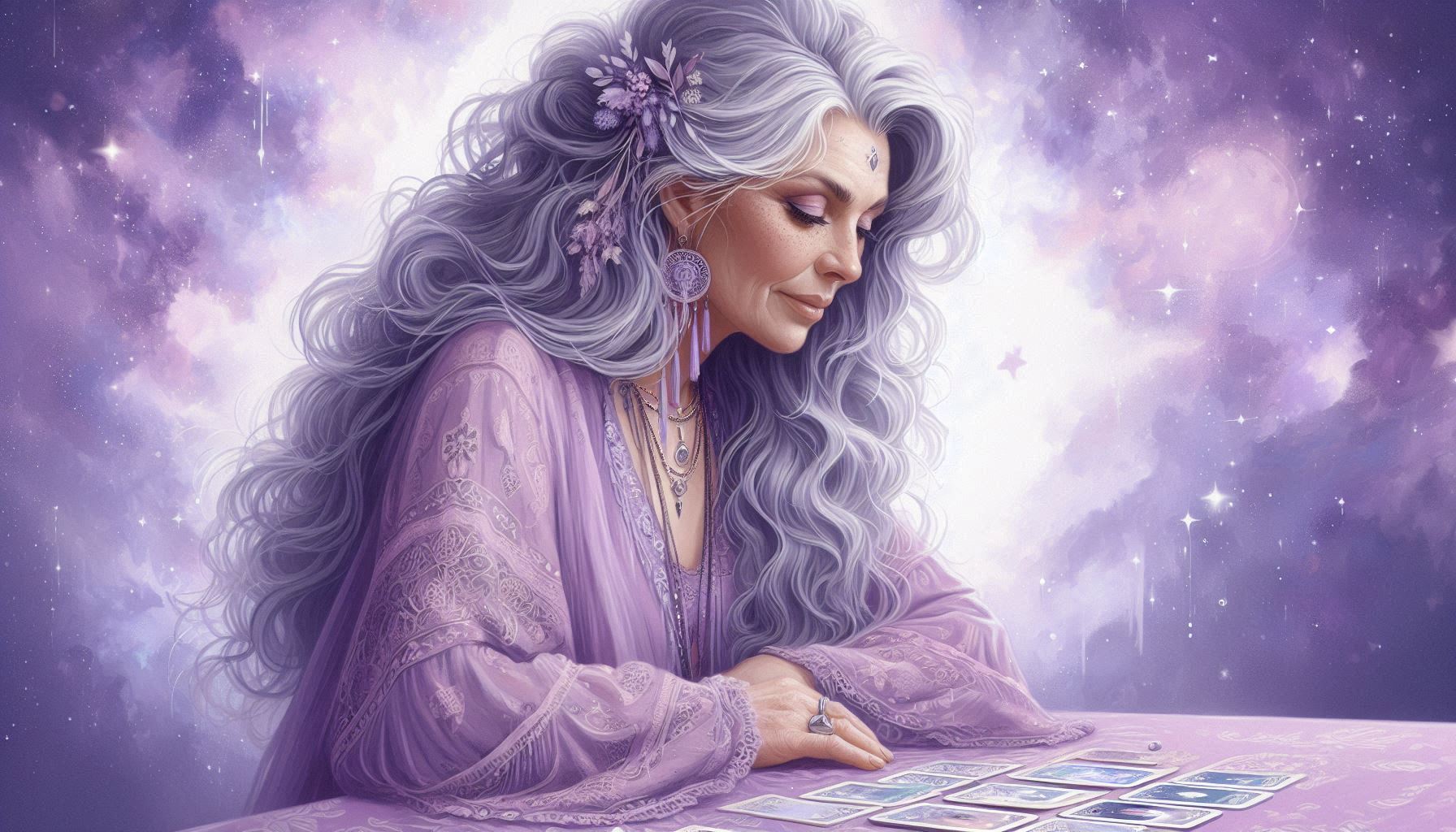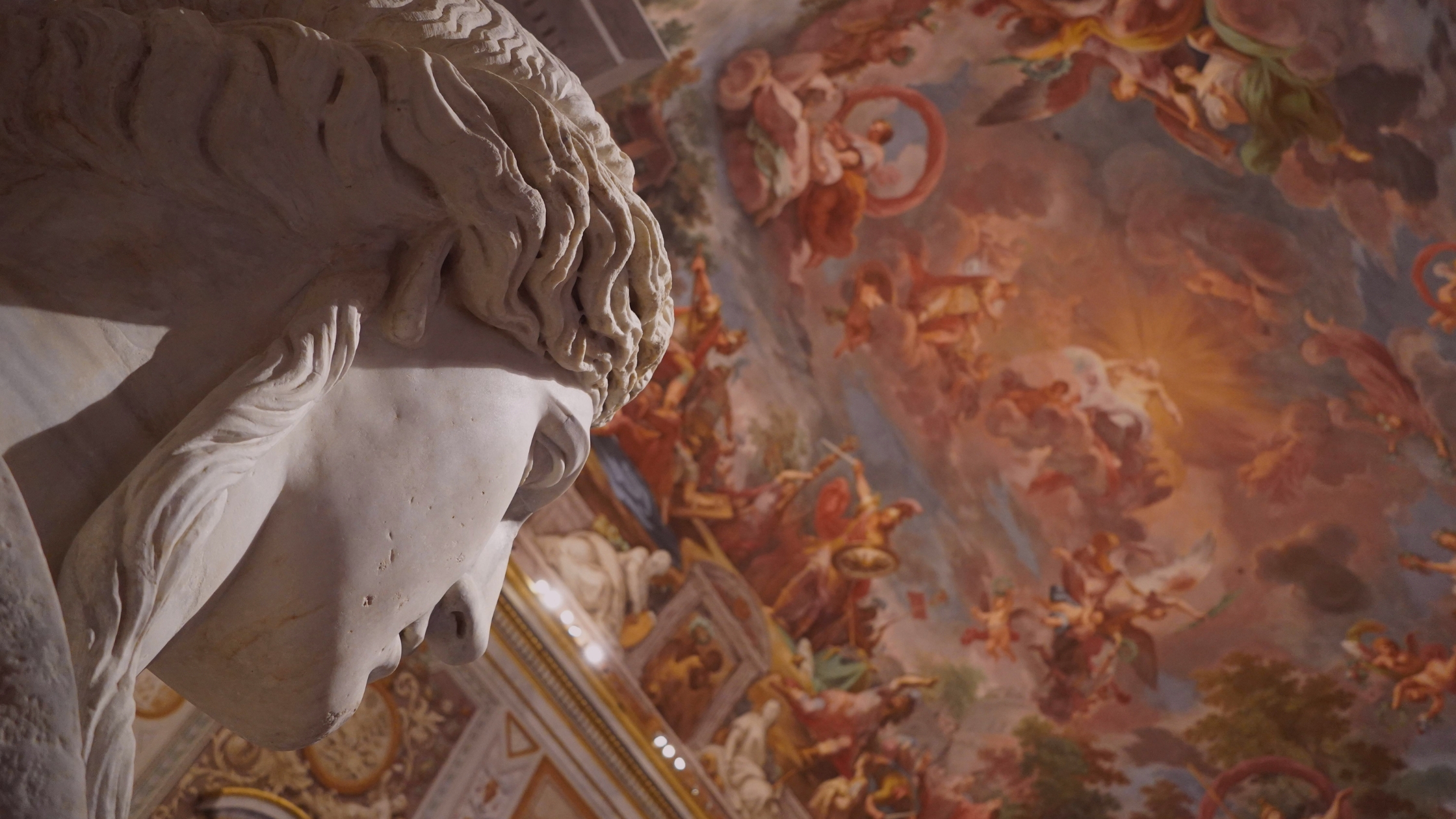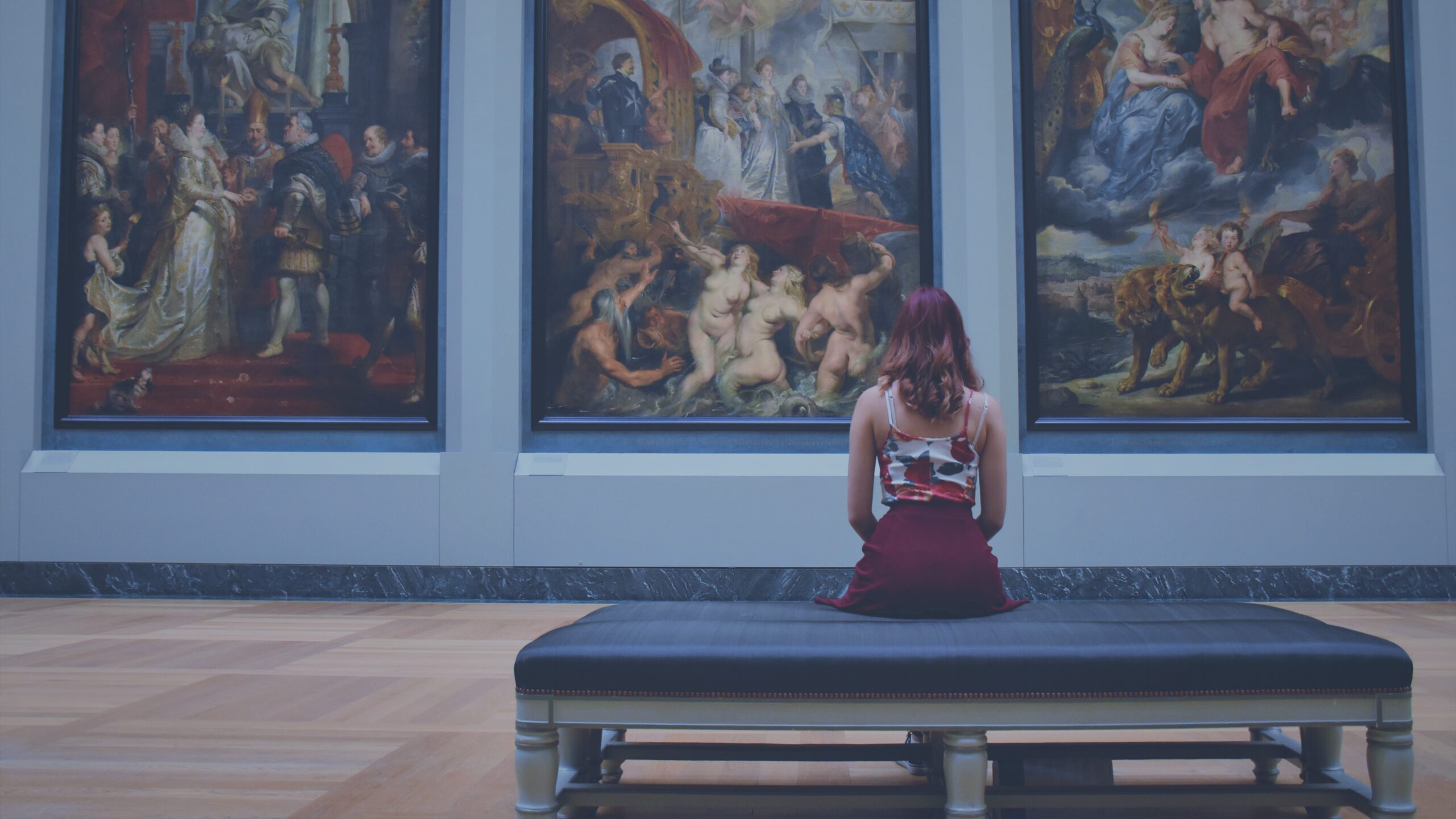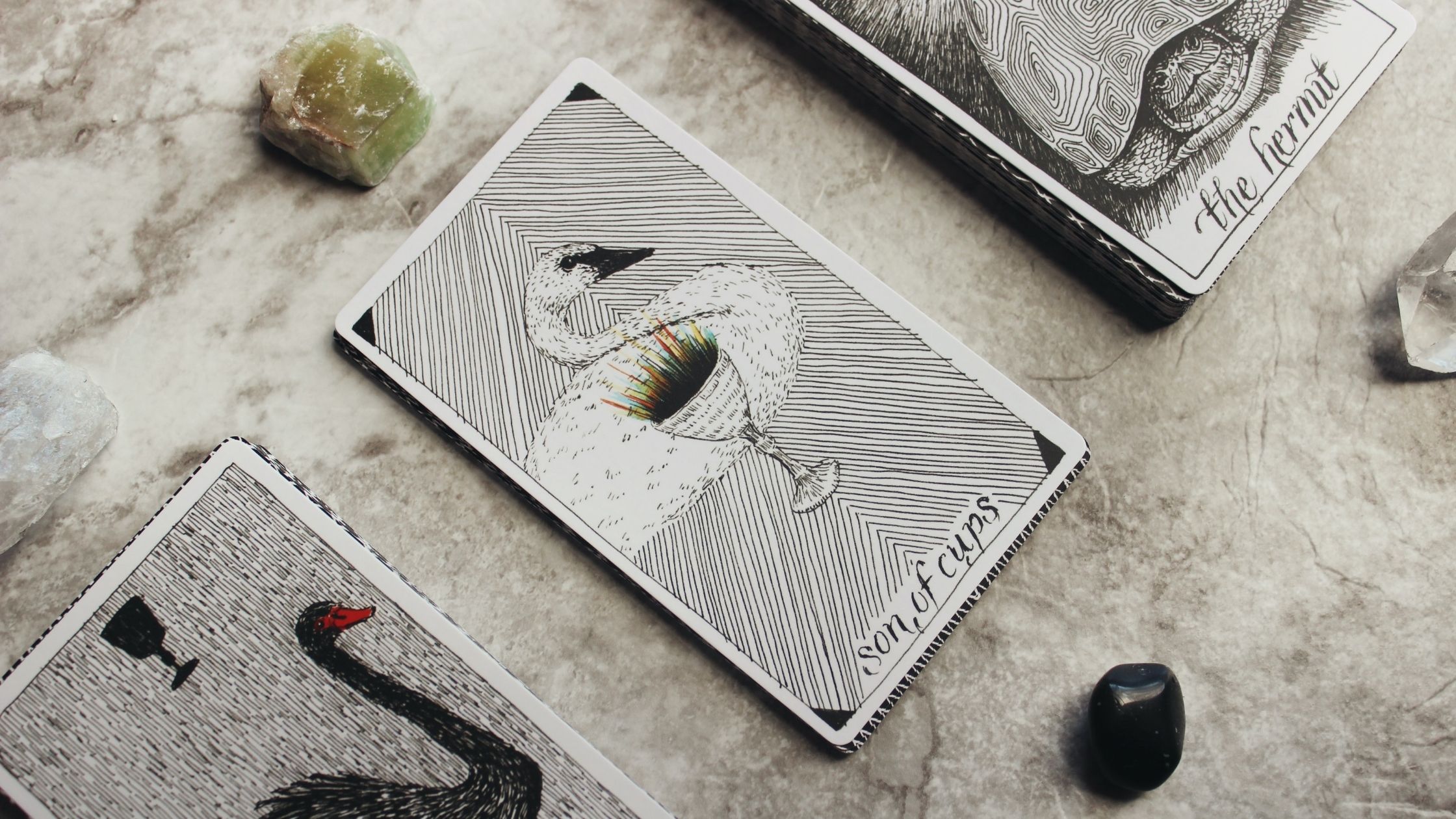You’ll Get Better at Tarot with Age Because Wisdom Reads the Cards
You’ll get better at reading tarot when you’re older, but not just due to having years of practice. We’ve all seen people who’ve driven cars their entire lives and not get better.
Being a skilled tarot reader requires something different.
Good tarot reading is about integrating your life experience to help interpret the cards.
Seeing that, you may be worried younger tarot readers will lack skill. Or that if you read on a topic you didn’t experience firsthand, you won’t be able to get an answer.
I’m here to tell you that’s not the case.
You Need a Quilt of Wisdom
Knowledge and wisdom are two different things. To have knowledge of tarot is to know the meaning of the cards. But to have wisdom of tarot is applying those meanings to everyday life.
Getting older means you aren’t stuck in an ideal fantasy or imagined nightmare of what relationships are like, what happens in careers, and what it feels like to get sick. You’ve got experience with all those things.
So if someone asked you if they would be happy to have children and you pulled the Nine of Cups, a reader without a quilt of wisdom would answer differently than one who did.
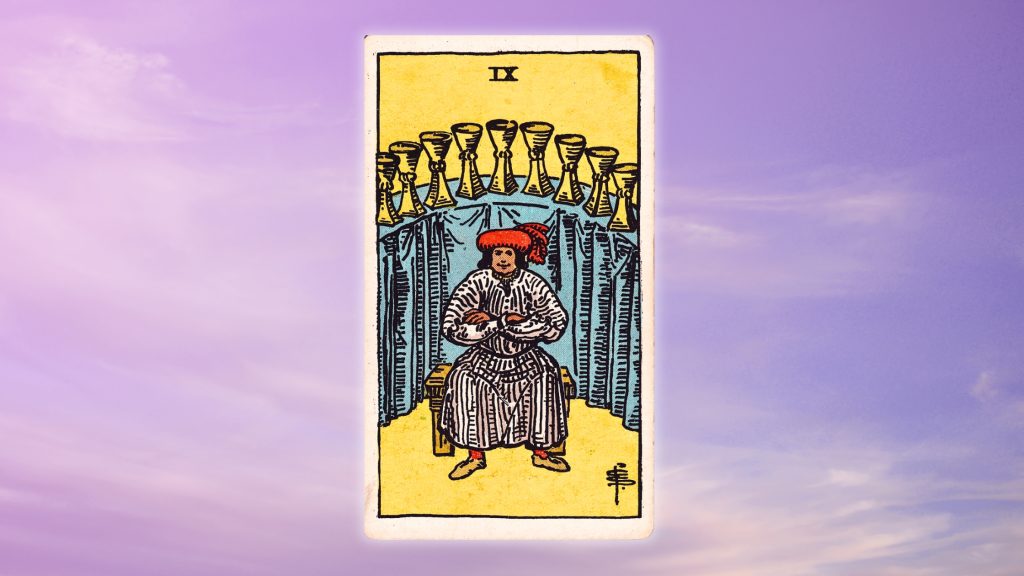
The reader without a quilt of wisdom lacks insight into what makes a fulfilling life. They would assume that any major success would be good enough. Their interpretation would look like this:
The Nine of Cups is a card of wish fulfillment. You’ll love having children and it’ll be everything you ever dreamed of!
But a reader with a quilt of wisdom would know the complexities of being a parent. They’d probably say it’s one of the most fulfilling things you can ever do… and yet they’d be aware that no life path can have a singular focus at the expense of everything else.
Every day, you see devoted homemakers engaging in beloved hobbies, starting exciting home businesses, going on dates with their soulmates, hanging out with their best friends, and just enjoying what life has to offer with eagerness.
This skilled reader would probably say something like this:
The Nine of Cups is a card of wish fulfillment. But see how the man in that card looks like he’s hungry for more? You’ll adore having children, but you’ll want other things too. The man is also sitting on an uncomfortable wooden chair. Don’t assume having what you want now will be all that you dream. And that’s what wonderful because you’ll probably manifest those other dreams too.
It’s difficult to see and understand all symbols on a tarot card if you’re unfamiliar with the associations.
So have patience with yourself if you look up a tarot card’s meaning and you don’t understand why that’s one of its associated meanings. Everyone gets more out of tarot the longer they live, not less.
And it’s not because they memorized another reading — they understand how the meanings can be interpreted across a spectrum of possible lives.
I have seen the Nine of Cups described as being an incomplete wish fulfillment many times and there are symbolic reasons why. However, when you’re a new reader you’re going to naturally cling to the symbols you recognize most or the stock meaning.
That’s why I call it a quilt of wisdom. It’s a patchwork of collected experiences from many sources that are added to throughout your life.
The reason the more skilled reader has a better answer could be due to having their own children — but perhaps the reader is familiar with research on parenting, personal fulfillment, or has witnessed parents around in their life as evidence.
Life experience doesn’t just come through what you live, but also from the examples of others you see that are then syncretized into how you read tarot.
The Importance of Emotional Learning
As a tarot reader, I integrate a lot of self development advice into my readings. That’s because it’s something I know about through personal study and experience.
Everyone’s quilt of wisdom is going to be different depending on their interests and life story.
However, there’s something else you should consider to improve your skills as a tarot reader.
Story.
There’s been a lot of research indicating that people are more emotionally intelligent if they read fictional books, watch story-driven television, and other forms of plot-centric entertainment.

It’s fun to consume stories, but it also increases your empathy, introduces you to diverse perspectives, and so on.
Human language is symbolism and a higher level of symbolism is used in stories. That’s why things like myths and fairy tales exist. It conveys truths about what it means to be alive. It’s fun, but it’s not just fun. Stories serve a subtle purpose.
By enjoying stories, you’re engaging with a human tradition that goes back tens of thousands of years with countless tropes and literary conventions.
For example, tarot cards always have an implied character and an action. This is the plot of the card. The character might be the person the reading is for or someone they’ll encounter. The action is either a conflict or the outcome of a conflict.
Going back to the Nine of Cups, the character is represented by a lover literary archetype (fitting for a suit in tarot usually associated with love). The action is the outcome of the character attaining his dreams — but realizing it wasn’t enough.
We see this all the time in stories. The ambitious character fights for success and realizes it didn’t satisfy their longing for meaning after all.
A Practical Tip for You
Depending on your education, you may or may not have been exposed to traditional methods of story interpretation.
I actually went to two colleges that had wildly different approaches. One taught us what stories meant objectively while the other told us that was all wrong and we had to tear the stories apart to discard the objective meanings.
If you had the first type of instruction where you learned about characters and story structure, you know what to research to be able to look at tarot as a story.
But if you were the second, you may only be looking at tarot with how you feel about it.
That’s not intuition — that’s personal opinion and opinions are often wrong. Your intuition is meant to help you find the exact objective meaning for the question using the symbols in front of you.
To help you break away from this tendency, you should look up guides on literary analysis, or if you want it to be less technical, how to write a genre story. You don’t have to write a story, just see how good writers achieve it.
By doing this, you’ll be able to associate the symbols in tarot with symbols you’ve seen elsewhere in stories. The more you enjoy stories with this literary knowledge, the better-tuned your tarot reading skills will be.
I’m writing a book on how to use tarot in everyday life! This article is part of a series based on my research in the writing process called Learn Tarot with Emmarie.
If you found what you read helpful, be sure to let me know. You can also support my writing by leaving a tip on Ko-fi.
